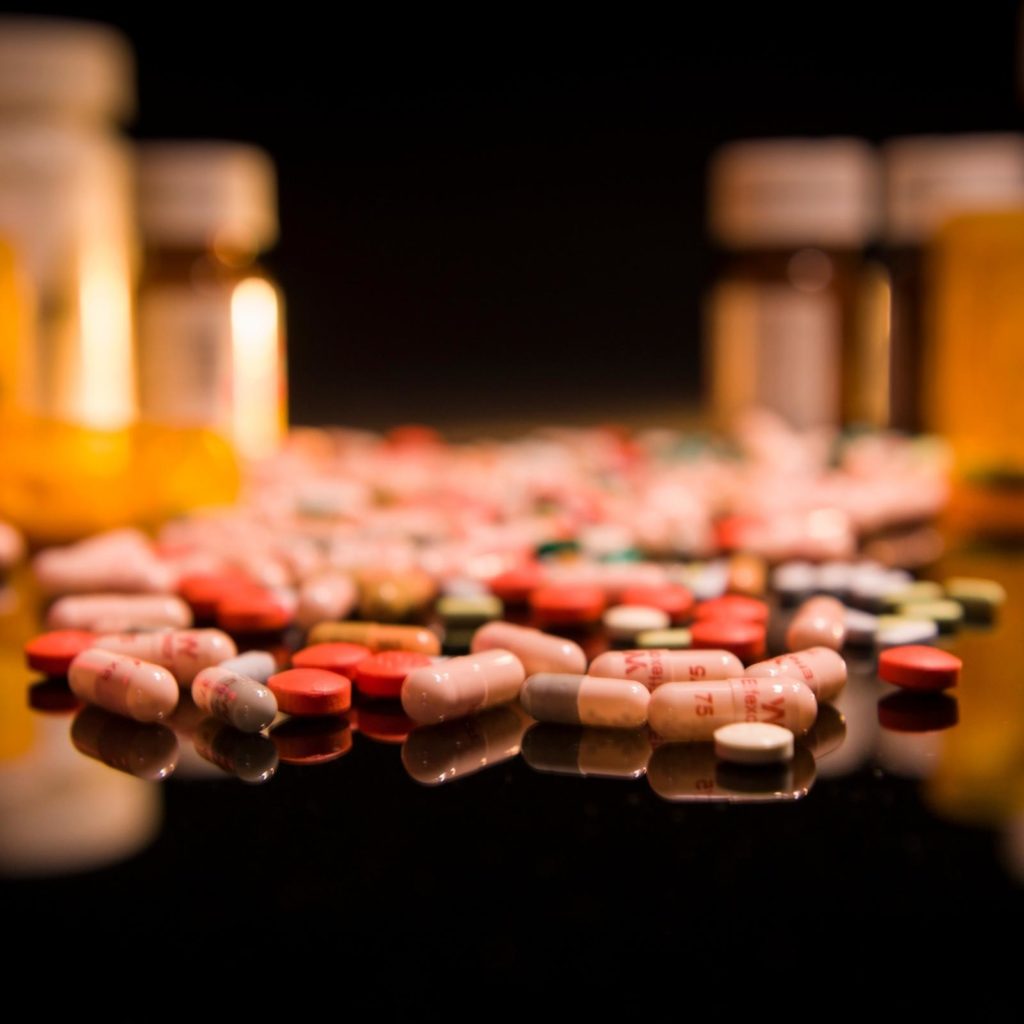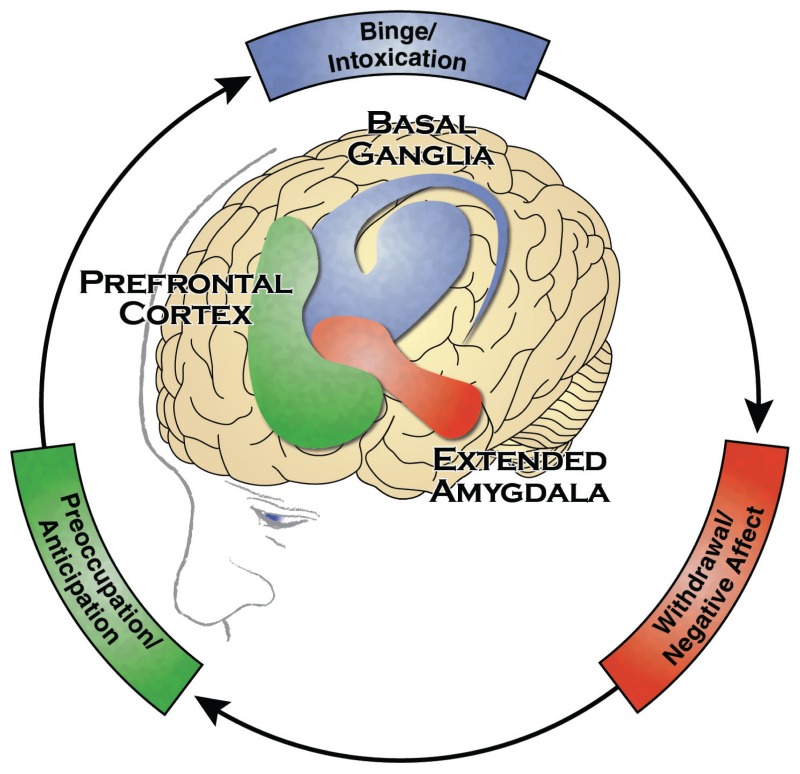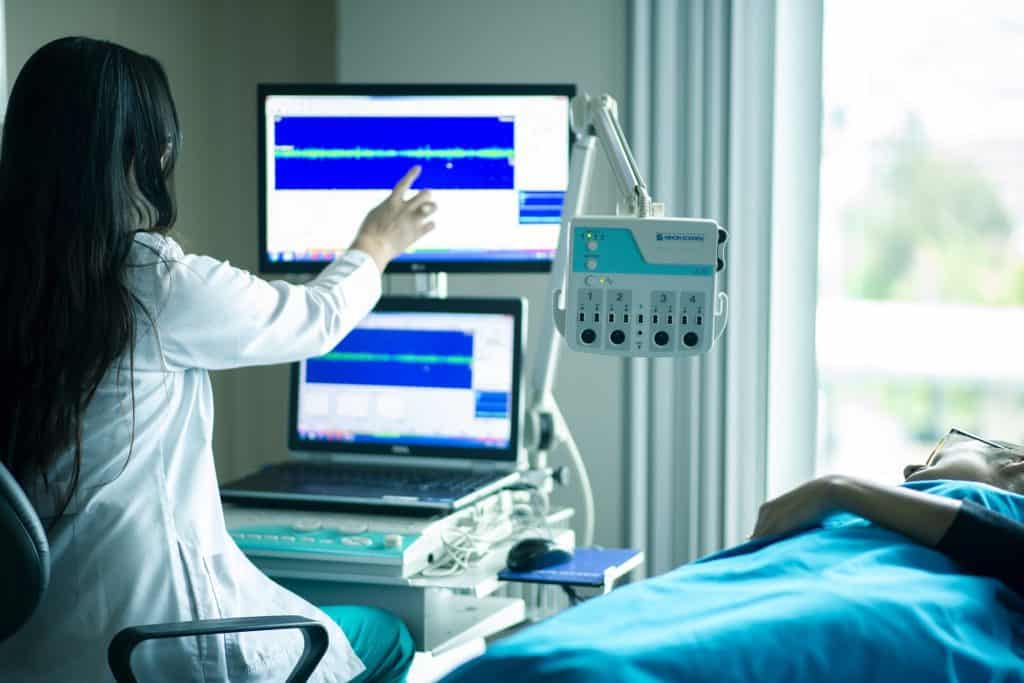The Stages of Addiction
As a country, we have a serious addiction cycle problem — the use of alcohol, illegal drugs, and/or prescribed medications in ways that produce harm to ourselves and those around us. These harms are significant financially with total costs of more than $420 billion annually and more than $120 billion in healthcare. But these problems are not simply financial burdens — they deteriorate the quality of our health, educational, and social systems, and they are debilitating and killing us — particularly our young through alcohol-related car crashes, drug-related violence, and drug overdoses. [1]
What is substance use disorder? SUD happens when a person’s use of alcohol or another substance (drug) leads to health issues or problems at work, school, or home. This disorder is also called substance abuse. The exact cause of substance use disorder is not known. Is addiction hereditary? A person’s genes, the action of the drug, peer pressure, emotional distress, anxiety, depression, and environmental stress can all be factors.
Many people who develop a drug or alcohol abuse have depression, attention deficit disorder, post-traumatic stress disorder, or other mental problems. A stressful or chaotic lifestyle and low self-esteem are also common. Individuals who grow up seeing their parents using drugs may have a high risk of developing an addiction cycle later in life for both environmental and genetic reasons.

Get Your Life Back
Find Hope & Recovery. Get Safe Comfortable Detox, Addiction Rehab & Dual Diagnosis High-Quality Care.
Hotline(844) 597-1011Addiction Cycle Diagram
Addiction can be described as a repeating cycle with 3 stages. Each stage is particularly associated with one of the brain regions described as basal ganglia, extended amygdala, and prefrontal cortex. This three-stage model draws on decades of human and animal research and provides a useful way to understand the symptoms of substance abuse, how it can be prevented and treated, and how people can recover from it. The 3 stages of the addiction cycle are:
- Binge/Intoxication – It is the stage at which an individual consumes an intoxicating substance and experiences its rewarding or pleasurable effects
- Withdrawal/Negative Affect – The stage at which an individual experiences a negative emotional state in the absence of drugs or alcohol
- Preoccupation/Anticipation – The stage at which one seeks substances again after a period of abstinence.


Alcohol or drugs are chemicals. When you put these chemicals into your body, either by smoking, injecting, inhaling, or eating them, they tap into your brain’s communication system and tamper with the way nerve cells normally send, receive, and process information.
Our brains are wired to make sure we will repeat survival activities, like eating, by connecting those activities with feeling good. Whenever this reward circuit is kick-started, the brain notes that something significant is occurring that has to be remembered and teaches us to do it again and again, without thinking about it. Because drugs or alcohol come in and “hijack” the same circuit, people learn to use substances in the same way.
After repeated substance use, the brain begins to adjust to the surges of dopamine. Neurons may start to reduce the number of dopamine receptors or simply make less dopamine. The outcome is less dopamine signaling in the brain—like turning down the volume on the dopamine signal. Because drugs are mostly toxic, some neurons also may die. [3]
Get Help. Get Better. Get Your Life Back.
Searching for Accredited Drug and Alcohol Rehab Centers Near You?
Even if you have failed previously and relapsed, or are in the middle of a difficult crisis, we stand ready to support you. Our trusted behavioral health specialists will not give up on you. When you feel ready or just want someone to speak to about therapy alternatives to change your life call us. Even if we cannot assist you, we will lead you to wherever you can get support. There is no obligation. Call our hotline today.
(844) 597-1011Cycle of Addiction
There are several phases of drug use that may lead to the addiction cycle. Young people seem to move more quickly through the stages than adults. The stages of the addiction cycle are:
Stage 1: Initial Use
- Experimental use typically involves peers, done for recreational use; the user may enjoy defying parents or other authority figures. The signs listed below may suggest a developing problem even with an initial use:
- Hanging out with different friends
- Not caring about your appearance
- Getting worse grades in school and poor performance at work
- Missing classes or skipping a job
- Losing interest in your favorite activities
- Getting in trouble in school or with the law
- Having different eating or sleeping habits
- Having more problems with family members and friends
Questions to Ask: Do You Have a Problem?
Answering yes to any of the following questions may indicate the start of an addiction cycle problem:
- Have you ever ridden in a car driven by someone (including yourself) who had been drinking alcohol or using drugs?
- Do you ever drink alcohol or use drugs to relax, to feel better, or to fit in?
- Do you ever drink alcohol or use drugs when you are alone?
- Do you ever forget things you did while drinking alcohol or using drugs?
- Do family or friends ever tell you to quit alcohol or drugs?
- Have you ever gotten into trouble while you were drinking alcohol or taking drugs?
Commonly used substances [4] include:
- Opiates and other narcotics are powerful painkillers that can cause drowsiness, and sometimes intense feelings of well-being, elation, happiness, excitement, and joy. Abuse of these drugs includes heroin addiction, opium, codeine addiction, and prescription drug addiction (that may be prescribed by a doctor or bought illegally)
- Stimulant drugs stimulate the brain and nervous system. Stimulant abuse includes cocaine addiction and amphetamine addiction, such as drugs used for ADHD treatment (methylphenidate, or Ritalin). A person can start needing higher amounts of these drugs over time to feel the same effect.
- Depressants cause drowsiness and reduce anxiety. Substance abuse of this class of drugs includes alcohol abuse, barbiturates abuse, benzo addiction (Valium, Ativan, Xanax), chloral hydrate, and paraldehyde.
- Is LSD addictive? Yes, in a way it causes a person to have psychological dependence. Mescaline, psilocybin (“mushrooms”), and phencyclidine (PCP, or “angel dust“) can cause a person to see things that are not there (hallucinations) and can lead to psychological addiction.
- Marijuana use disorder (cannabis, or hashish)
Stage 2: Abuse
- With the regular use, the user misses more and more school or work; worries about losing drug source; uses drugs to “fix” negative feelings; begins to stay away from friends and family; may change friends to those who are regular users; shows increased tolerance and ability to “handle” the drug.
Stage 3: Tolerance
- Drug tolerance is a condition that occurs when the body gets used to a drug so that either more substance is needed or a different drug is needed. It happens when someone’s brain no longer responds to a prescription or recreational drug in the same way it once did. In many cases, tolerance happens when someone has been taking a certain drug for an extended period of time.

Stage 4: Dependence
- The user loses any motivation; does not care about school and work; has obvious behavior changes; thinking about drug use as a priority over all other interests, including relationships; the user becomes secretive; may begin dealing drugs to help support the addiction; use of other, harder drugs may increase; legal problems may also increase.
- Substance abuse refers to excessive drug use that is detrimental to self, society, or both. This definition encompasses both physical dependence and psychological dependence.
Physical dependence caused by lengthened drug use refers to an altered physiologic state in which withdrawal symptoms develop when the drug is discontinued.
Psychologic dependence refers to a state of intense need to continue taking a drug in the absence of physical dependence. By these definitions, alcohol is a drug that can cause both physical and psychological dependence. [5]
Stage 5: Addiction
- The abuser cannot face a regular life without drugs; denies the addiction problem; physical condition gets worse; loss of “control” over use; may become suicidal; financial and legal problems occur and get worse; may have broken ties with family members or loved ones.
Symptoms and behaviors of drug use may include:
- Confusion
- Continuing to use drugs, even when health, work, or family are being harmed
- Episodes of violence
- Hostility when confronted about drug dependence
- Lack of control over drug abuse, being unable to stop or reduce alcohol intake
- Making excuses to use drugs
- Missing work or school, or a decrease in performance
- Need for daily or regular drug use to function
- Neglecting to eat
- Not caring about physical appearance
- No longer taking part in activities because of drug abuse
- Secretive behavior to hide drug use
- Using drugs even when alone
Stage 6: Relapse
Individuals recovering from various forms of addiction cycle frequently encounter relapses that have gained acceptance as an almost inevitable part of the recovery process. However, the normalization of relapses can reduce the urgency for providers, patients, and support individuals to prevent them from occurring. Countless individuals lose their employment, families, freedom, and even lives as a consequence of relapses. Relapse prevention must be a central goal of almost every addiction treatment team.
First-class Facilities & Amenities
World-class High-Quality Addiction & Mental Health Rehabilitation Treatment
Rehab Centers TourRenowned Addiction Centers. Serene Private Facilities. Inpatient rehab programs vary.
Addiction Helpline(844) 597-1011Proven recovery success experience, backed by a Team w/ History of:
15+
Years of Unified Experience
100s
5-Star Reviews Across Our Centers
10K
Recovery Success Stories Across Our Network
- Low Patient to Therapist Ratio
- Onsite Medical Detox Center
- Comprehensive Dual-Diagnosis Treatment
- Complimentary Family & Alumni Programs
- Coaching, Recovery & Personal Development Events
Breaking the Cycle of Addiction
Once the abuser makes lifestyle changes, abstains from drug abuse, and substitutes their dysfunctional life for a clean one, there’s a real possibility of breaking the addiction cycle. How does addiction recovery happen? Before they even start considering change, an addict is said to be in pre-contemplation. At this point, they haven’t stopped using the drug. When they begin to consider quitting, maybe as passing thoughts, they are in contemplation and preparation stages. [6]
Although they are still abusing drugs or alcohol, they often experience feelings of remorse, shame, and tremendous guilt after. They always resolve never to use it again, though they still end up doing so. Many people consider it the beginning of recovery when the addict begins exploring ways of treatment and counseling. They take action and start attending drug and alcohol rehab programs and support groups.
To ensure successful addiction rehabilitation, continuous aftercare programs, therapy and ongoing support from groups is necessary. The most effective drug and alcohol rehab program should include psychosocial counseling, medication, education peer-group therapy, relapse prevention plans, and aftercare techniques. Cognitive-behavioral therapies help the person to develop skills for managing this recurring part of the condition. Through experienced individualized help, abusers can learn to interrupt the addiction cycle and move on with their lives. With motivation and sustained abstinence, they can fully recover, restore their relationships, and continue to lead much happier lives free from the addiction cycle.

World-class, Accredited, 5-Star Reviewed, Effective Addiction & Mental Health Programs. Complete Behavioral Health Inpatient Rehab, Detox plus Co-occuring Disorders Therapy.
CALL(844) 597-1011End the Addiction Pain. End the Emotional Rollercoaster. Get Your Life Back. Start Drug, Alcohol & Dual Diagnosis Mental Health Treatment Now. Get Free No-obligation Guidance by Substance Abuse Specialists Who Understand Addiction & Mental Health Recovery & Know How to Help.
Different Types of Treatment for Addiction
As the addiction treatment community begins to realize that addiction is itself a mental disorder, the relationship between the addiction cycle and psychiatric disorders becomes more complicated. The greater treatment community largely lacks a proper understanding of dually diagnosed conditions, so these conditions are still treated separately, or worse–not treated or diagnosed at all. Our dual diagnosis treatment centers in We Level Up Florida, California, Texas, and New Jersey are some of the facilities that have professionals trained to help treat co-occurring disorders concurrently. This type of tandem treatment provides some of the best success rates.
We Level Up treatment tailors the program to the individual and the individual to the program of recovery. We begin by assessing our client’s history of mental health, drugs, and alcohol-related past. The needs of each patient are specific and personalized because we aim to provide comprehensive support for mental health, addiction, and dual diagnosis treatment. The supportive environment is designed accordingly to give patients 24-hour care for sobriety. Most importantly, we hope to have our clients live comfortably within the facility during this crucial and fragile time of breaking the addiction cycle.
Medical Detox
Cravings are very common during the medical detox and can be challenging to overcome. This often leads to relapse. Constant medical care provided during inpatient treatment helps prevent relapse and break the addiction cycle. Clinicians can provide necessary medication and medical expertise to lessen cravings and the effects of withdrawals.
Medically-Assisted Detox
If you are experiencing an addiction cycle, it’s crucial to first get an accurate assessment of all the symptoms. When the symptoms have been evaluated by a mental health professional, it may be determined that another form of mental condition is present and needs a particular type of treatment. Very often, some combination of psychotherapy, medication, and/or lifestyle changes are effective for coping and long-term recovery.
Drug detox is often considered the first stage of treatment, same with alcohol detox and withdrawal treatment. It will help you navigate the complicated process of withdrawal, but it doesn’t address patterns of thought and behavior that contribute to the addiction cycle. Various treatment approaches and settings can help provide the ongoing support necessary to maintain long-term sobriety after you complete detox.

Detoxification is an overall process with three essential components that may take place concurrently or as a series of steps:
- Evaluation involves testing for the presence of substances of abuse in the bloodstream, measuring their concentration, and screening for co-occurring mental and physical conditions.
The assessment also includes a comprehensive evaluation of the client’s medical and psychological disorders and social situation to help determine the appropriate level of treatment following detoxification. Essentially, the assessment serves as the basis for the initial substance abuse treatment plan once the patient has successfully withdrawn.
- Stabilization includes the medical and psychosocial processes of assisting the client through severe intoxication and withdrawal to achieve a medically stable, fully supported, substance-free state. This often is done with the assistance of medications, though in some approaches to detoxification, no prescription is used.
Stabilization includes familiarizing clients with what to expect in the treatment environment and their role in treatment and recovery. During this time, practitioners also seek the involvement of the client’s family, employers, and other significant people when appropriate and with confidentiality release.
- Fostering the client’s entry into treatment involves preparing the client for entry into substance abuse treatment by stressing the importance of following through with the complete substance abuse treatment continuum of care.
Once detox is complete, a new doorway in treatment opens up, which is referred to as a residential level of care. The residential care program slowly and effectively introduces the individual into an atmosphere of therapeutic growth, marked by master’s level therapists, clinicians, group counselors, psychiatrists, and a community of like-minded individuals with the same aim: to attain sobriety and live a great life.
Psychotherapy
Several different modalities of psychotherapy have been used in the treatment of mental health disorders along with the addiction cycle, including:
- Cognitive Behavioral Therapy (CBT) – It is an effective treatment that involves making changes in both the patterns of negative thoughts and the behavioral routines which are affecting the daily life of the depressed person for various forms of depression.
- Dialectical Behavioral Therapy – It is a comprehensive mental health and substance abuse treatment program whose ultimate goal is to aid patients in their efforts to build a life worth living. The main goal of DBT is to help a person develop what is referred to as a “clear mind.”
- Solution Focused Therapy – It is an approach interested in solutions that can be quickly implemented with a simple first step leading to further positive consequences.
- Medication-Assisted Treatments (MAT) for substance use disorders and mental health disorders are commonly used in conjunction with one another. This includes the use of medications and other medical procedures to ease withdrawal symptoms or complications.
Some of the many modalities applied and practiced within our residential treatment facility are:
- Cognitive Behavioral Therapy
- DBT Therapy
- 12-Step Groups
- Group Therapy
Sometimes, the pressures and problems in your life lead you to rely on your addiction cycle to help you forget about them momentarily. If you or a loved one are struggling with the addiction cycle and a co-occurring mental health condition such as depression, contact one of our helpful treatment specialists today. We Level Up can provide information on dual diagnosis and detox programs that may fit your specific needs.
Our FREE 24-hour Hotline can help you answer addiction-related questions and will provide resources to break the addiction cycle. Get a free consultation now for your best-fitting treatment programs along with free rehab insurance verification. Call We Level Up today and speak with one of our addiction specialists to check your rehab insurance coverage and benefits.
Experience Transformative Recovery at We Level Up Treatment Centers.
See our authentic success stories. Get inspired. Get the help you deserve.
Start a New Life
Begin with a free call to an addiction & behavioral health treatment advisor. Learn more about our dual-diagnosis programs. The We Level Up Treatment Center Network delivers recovery programs that vary by each treatment facility. Call to learn more.
- Personalized Care
- Caring Accountable Staff
- World-class Amenities
- Licensed & Accredited
- Renowned w/ 100s 5-Star Reviews
We’ll Call You
Sources
[1] Substance Misuse and Substance use Disorders: Why do they Matter in Healthcare? – National Center for Biotechnology Information
[2] Substance Abuse and Mental Health Services Administration (US); Office of the Surgeon General (US). Facing Addiction in America: The Surgeon General’s Report on Alcohol, Drugs, and Health [Internet]. Washington (DC): US Department of Health and Human Services; 2016 Nov. Figure 2.3, The Three Stages of the Addiction Cycle and the Brain Regions Associated with Them. Available from: https://www.ncbi.nlm.nih.gov/books/NBK424849/figure/ch2.f3/
[3] Brain and Addiction – National Institute on Drug Abuse
[4] Substance use disorder – U.S. Department of Health and Human Services National Institutes of Health
[5] Substance Abuse – National Center for Biotechnology Information
[6] Addiction Rehabilitation – Level Up Lake Worth, FL


